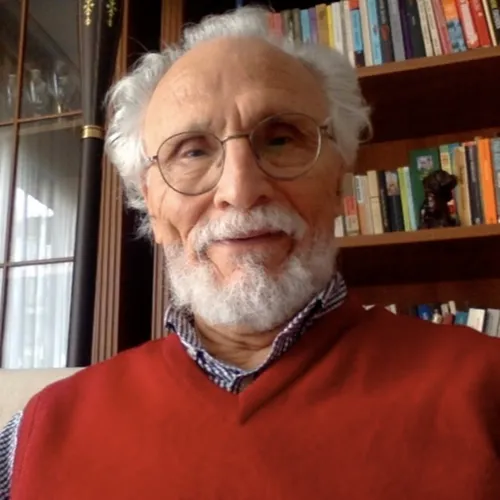Bahattin Akşit 2024 Deleuze to Ulus Baker & His PhD Thesis: From Opinions to Sociology of Affects
- Author
- Bahattin Aksit
- Published
- Wed 06 Aug 2025
- Episode Link
- https://podcasters.spotify.com/pod/show/bahattin-aksit/episodes/Bahattin-Akit-2024-Deleuze-to-Ulus-Baker--His-PhD-Thesis-From-Opinions-to-Sociology-of-Affects-e36hd2p
Ulus Baker was born in 1960 and died at a very young age at 2007. Ulus Baker's MA thesis, in Sociology Department of METU, was on the rise of Political Islam: Peace Discourse in Political Language - Peace, Discourse and Opinion in Islam written in 1993. His PhD thesis in the same department was titled as. “From Opinions to Images: Towards a Sociology of Affects” written in 2002. Both of these theses were translated into Turkish and published. His PhD these was also published in English. He Published many articles and commentaries in academic and popular journals and some of were published in Turkish as edited collections. Aşındırma Denemeleri, 2002; Siyasal Alanın Oluşumu Üzerine Bir Deneme, 2005; Beyin Ekran, 2017. His PhD thesis was published in Turkish with the following title: Kanaatlerden İmajlara: Duygular Sosyolojisine Doğru, 2018.The following Paragraph is the Abstract of Ulus Baker's PhD Thesis: This thesis is intending to show the possibility of a marriage between social sciences and documentary filmmaking, which can only be possible through the critique oe what we may call “sociology of opinions”, not only restrined in mainstream practice of social research, but also expanding into the textual-interpretative dimensions of human sciences, creating, in our belief, a major epistemological problem: sociology tending to become a doxology, i.e., an “opinion of opinions”. There is also another aspect of such a marriage, notably the power of the audio-visual media in the life-experience of modernity, creating a need for a theoretical discussion which is lacking in the actual theories of film. We are thus inclined to show critically what we may call as the “decline of social types” in the parallel evolution of social sciences and of the cinema. We are trying to define the possible marriage between social science and documentary as a tentative “sociology of affects”. The sociology of affects requires the early Tardean critique against Durkheim and his followers, of the “textual” epistemology inherent in the sociology of opinions, and an exposition of the Spinozist doctrine of affects against that of psychoanalysis. We define social-types as part of the wealth of sociological imagination, which is not something “in-itself”, but rather “for” the domain of life-experience to which it is devoted. Documentary filmmakers, who have been aware of the power of the medium they use have already developed a rather naïve ethics in their own domain –and this is what is lacking in the practice of social sciences. To avoid such a naiveté, however, we neet nothing more a theoretical vigilance which can be present in social sciences. We find the ultimate possibility of establishing such a visual-textual “sociology of affects” in the Vertovian praxis of the kino-eye and in the actual video-philosophy of Jean-Lac Godard, who intends to reshape videography as a “thinking-machine”.Keywords: Public opinion, epistemology, social research, social-types, affects, opinion, documentary film, cinema, psychoanalysis, kino-eye, kino-pravda, video-philosophy.
